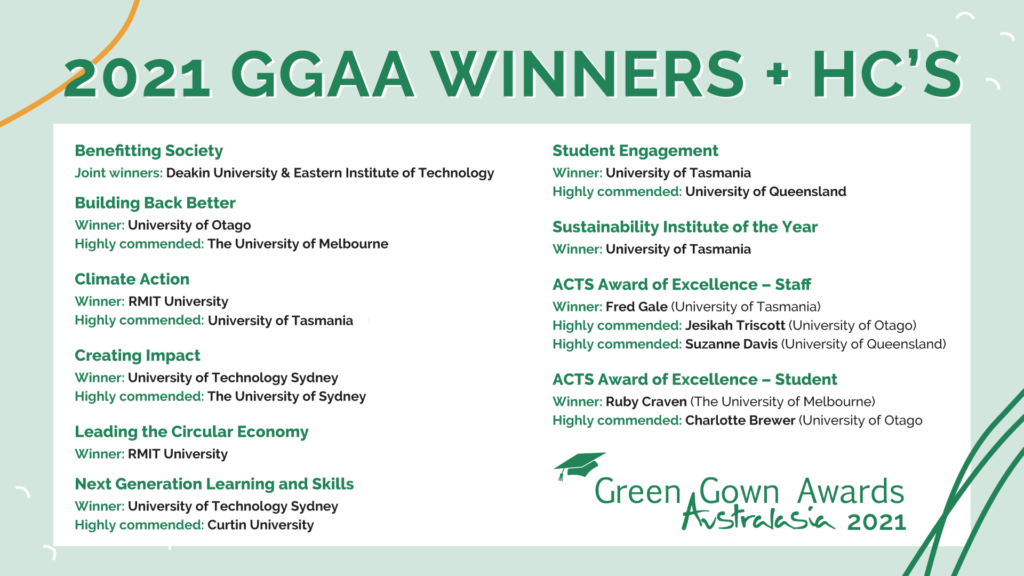Integrating sustainability across EIT
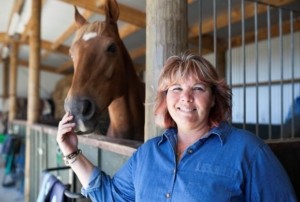 The push to integrate sustainable activities across EIT – in practice, teaching research and relationships – is being led by Professor Natalie Waran, the Executive Dean for the Faculty of Education, Humanities and Health Science and Chair of One Welfare along with Jo Blakeley, Director of Academic and Student Services.
The push to integrate sustainable activities across EIT – in practice, teaching research and relationships – is being led by Professor Natalie Waran, the Executive Dean for the Faculty of Education, Humanities and Health Science and Chair of One Welfare along with Jo Blakeley, Director of Academic and Student Services.
The One Welfare project at EIT is interdisciplinary, breaking down traditional silos, provoking debate and discussion to provide new approaches and ways of thinking that will contribute to the development of a healthy, productive and sustainable region.
Wine researchers address inaugural EIT symposium
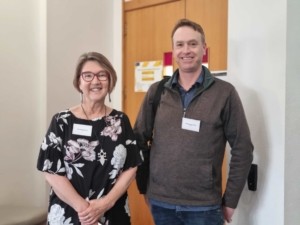
An inaugural wine research symposium, attended by representatives from industry and researchers from universities, crown research institutes and polytechs around the country, was held at EIT’s Hawke’s Bay Campus on Thursday 28 October.
Hosted by the School of Viticulture and Wine Science, the symposium, called Advancing Viticulture and Wine related research, featured researchers from EIT, the University of Auckland, Nelson-Marlborough Institute of Technology (NMIT), Lincoln University, and the Bragato Research Institute (BRI), LandWISE and Ag Research.
The aim of the symposium was to provide a platform to present New Zealand research to industry and help develop collaboration for future wine industry related research.
Head of EIT’s School of Viticulture and Wine Science, Sue Blackmore, says the symposium was a success, with strong interest from researchers to present and a good turn out from industry and research organisations on the day.
Digital divide an issue facing small businesses
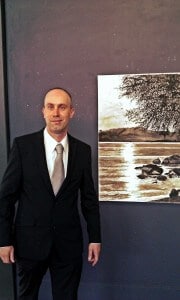 The threat of digital exclusion facing small businesses in Napier and the rest of Hawke’s Bay is the focus of a research project by EIT and InternetNZ.
The threat of digital exclusion facing small businesses in Napier and the rest of Hawke’s Bay is the focus of a research project by EIT and InternetNZ.
The research, which is being done by Dr Emre Erturk, the Principal Academic Staff Member at EIT’s School of Computing, is examining how digital exclusion could affect the quality of life for local small businesses owners and managers and stymie the success of their businesses.
Learning in nature project - EIT a finalist in prestigious Awards
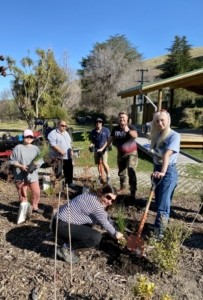 EIT is, for the second year in a row, a finalist in the prestigious Green Gown Awards, run by the Australasian Campuses Towards Sustainability (ACTS).
EIT is, for the second year in a row, a finalist in the prestigious Green Gown Awards, run by the Australasian Campuses Towards Sustainability (ACTS).
One of only two of the country’s tertiary institutions to make it through to the final round of judging, EIT has been shortlisted in the Benefitting Society category for its community-focused Learning in Nature (LIN) project. The awards are open to all Australasian tertiary institutions and recognise exceptional sustainability initiatives.
EIT’s entry last year described the development of the Ōtātara Outdoor Learning Centre (OOLC) on the Hawke’s Bay Campus and related activities, enabling Learning in Nature (LIN) within an immersive mindspace.
This year’s entry “Ko au te taiao, ko te taiao ko au: I am nature, nature is me” describes the project’s increased community reach and how it enhances lives by connecting people with nature and cultural heritage, whilst supporting the connection of schools with their own local environment. LIN has developed through research and regional engagement with educators and learners at EIT and through communities of practice. It has advanced teacher ability to embed nature literacy and sustainability values within the region’s educational culture from early childhood to post-graduate level teaching.
Regenerative Agriculture holds solutions, EIT Policy Think Tank hears
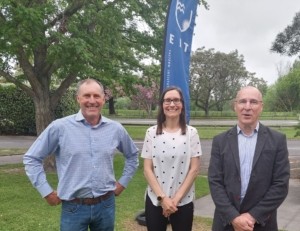 Regenerative Agriculture provides the solutions to many of the problems the world is facing, a Policy Think Tank organised by EIT’s Research and Innovation Centre heard last week.
Regenerative Agriculture provides the solutions to many of the problems the world is facing, a Policy Think Tank organised by EIT’s Research and Innovation Centre heard last week.
The forum, which was held at EIT’s Hawke’s Bay Campus in Taradale on Thursday, was called Regenerative Agriculture and the future of farming. Addressing the socially-distanced crowd were Edgar Burns, Associate Professor at the University of Waikato and the inaugural Hawke’s Bay Chair of Integrated Catchment Management, based at EIT; and local farmer, Greg Hart, from Mangarara Station near Elsthorpe, Central Hawke’s Bay.
Greg said the “interesting times we are living in” meant farmers had to look for alternative ways of working their land.
2021 Green Gown Awards Australasia Winners!
